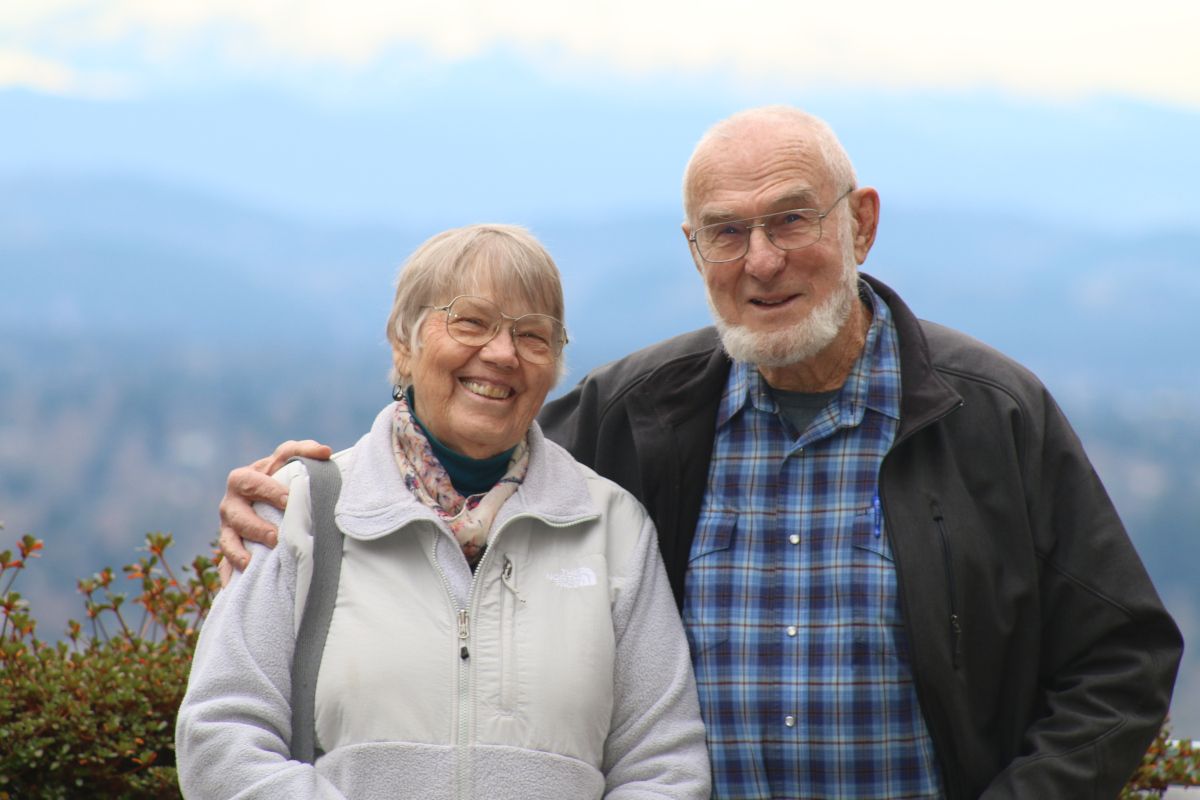OSHU to investigate effects of Gotu kola extract in subjects with Alzheimer’s Disease
OSHU explains that the pilot study will not test memory directly, but rather use blood samples and brain scans to find biomarkers and other signs that indicate the extract’s ability to aid memory.
Andrew Clark, right, with his wife, Barbara, is among the first to enroll in a clinical trial at OHSU involving Centella asiatica, a botanical used in dietary supplements to improve memory. Clark, a retired State Veterinarian for Oregon who lives in Pendleton, says it’s important to be open about age-related cognitive impairment and wants to contribute to research improving the lives of others. (OHSU/Erik Robinson)

Oregon Health & Science University (OSHU) has announced a clinical trial investigating the effects of Gotu kola (Centella asiatica) on biomarkers related to cognitive health. OSHU is recruiting subjects between the ages of 65 and 85 diagnosed with mild cases of Alzheimer’s disease or cognitive impairment. OSHU explains that the pilot study will not test memory directly, but rather use blood samples and brain scans to find biomarkers and other signs that indicate the extract’s ability to aid memory. This is the first clinical trial conducted by OSHU to test a botanical used in dietary supplements since the establishment of its Botanical Dietary Supplements Research Center in 2020. The Center is a collaboration between OHSU, Oregon State University, the University of Mississippi and Redmond-based Oregon’s Wild Harvest.
The investigators at OSHU collaborated with Oregon State University and Oregon’s Wild Harvest in preclinical experiments and early human pharmacokinetics studies. They even precisely formulated the dosage and chemical composition of the extract animal testing in mouse models of Alzheimer’s Disease.
“The whole idea of the center is to build up the kind of preclinical information you need to do good clinical trials on botanicals that are used in dietary supplements,” said center director Amala Soumyanath, PhD, professor of neurology in the OHSU School of Medicine, in a press release. “With Centella, we’re at that point.”
During the clinical trial, 48 subjects will be given either the extract or placebo in a drinkable format for six weeks. Blood draws and brain MRI scans will be taken at the start and finish of the trial. “The goal is to see whether this herb does something in the body that’s related to memory,” said clinical trial coordinator Alex Speers, ND, assistant professor of neurology in the OHSU School of Medicine. “We’re not going to be able to show that it improves memory in this pilot study.”
OSHU explains that if the pilot study finds a statistically valid signal in the blood and brain scans, its next step will be to organize a larger Phase 2 clinical trial that will include hundreds of participants over the course of months. The hope is that this research will lead to an effectively botanical treatments as well as botanical supplements that support memory loss.








